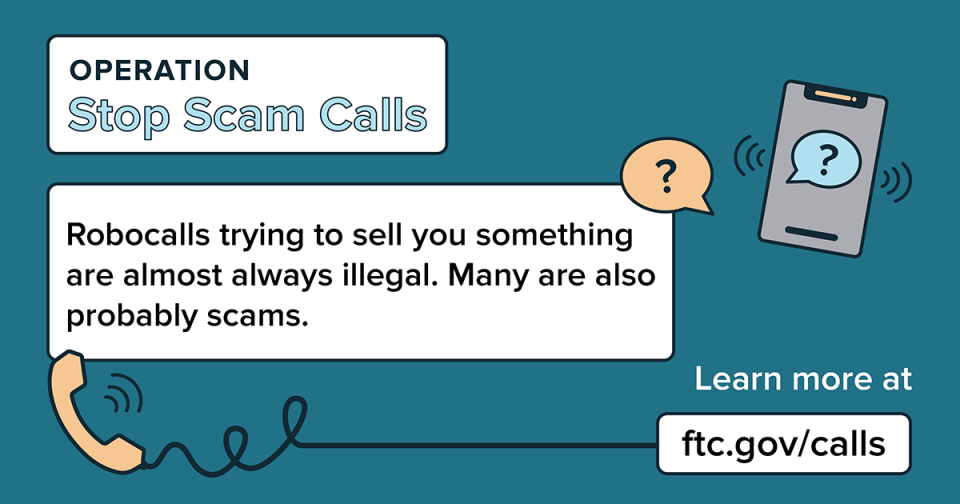
Safety & Security
Nobody likes getting bombarded with robocalls. Not only are they annoying, but they’re often pushing scams for things like fake auto warranties and credit card debt relief programs. The FTC and law enforcement agencies from all 50 states are taking action to stop them. And you can help, too.
Today, the FTC and its federal and state law enforcement partners announced Operation Stop Scam Calls, the latest joint effort in the fight against illegal robocalls. Today’s announcement outlines the enforcement actions to stop multiple dishonest telemarketers, the companies that hire them, and Voice over Internet Protocol (VoIP) service providers that supply the technology for telemarketers to make millions of scammy robocalls.
Here’s how you can help:
- Know your rights. A robocall trying to sell you something is illegal unless the company has your written permission to call you that way. Read the article Robocalls for more.
- Spot the scams that use illegal robocalls. Many illegal robocalls lead to scams. They might try to convince you the call is from the government, tech support, or your auto warranty company, but it’s not. It’s a scam. Listen to some examples of robocall scams.
- Hang up on phone scams. Some scammers will call you and say you won a prize but you have to pay to get it. (Don’t. It’s a scam.) Or the scammer may say that you’ll be arrested for money you owe and that you have to pay immediately. (That’s also a scam.) Hang up or delete the voicemail. Don’t press any number or call back. For more advice, read Phone Scams.
- Report scams and illegal robocalls. Reporting helps law enforcement and investigators stop scams and illegal robocalls. Report scams at ReportFraud.ftc.gov and report illegal robocalls at DoNotCall.gov.
For more advice on how to stop unwanted calls, check out ftc.gov/calls.

